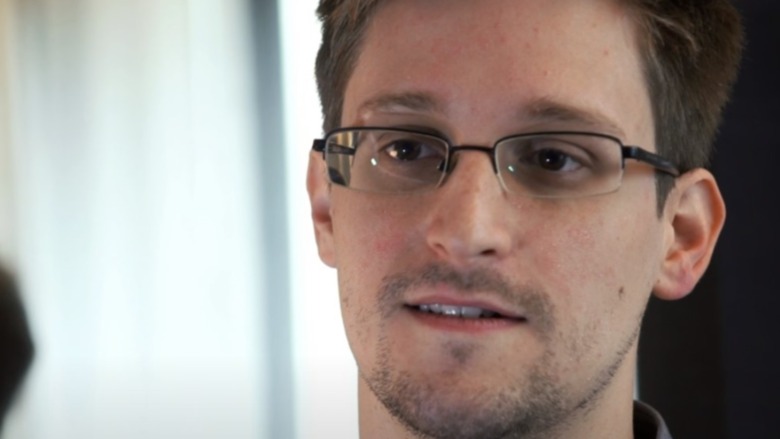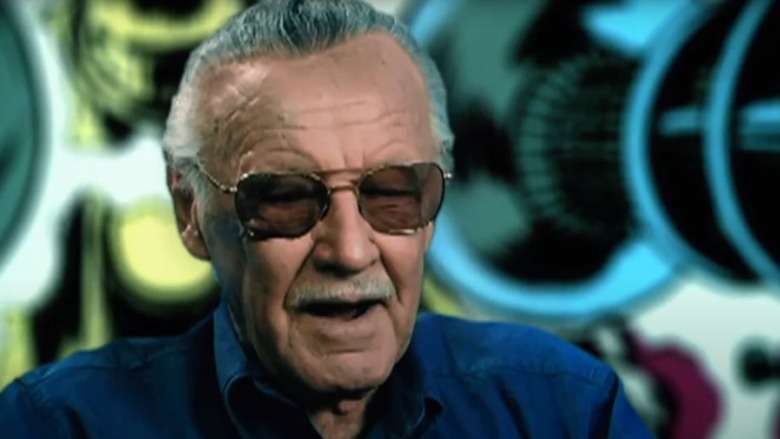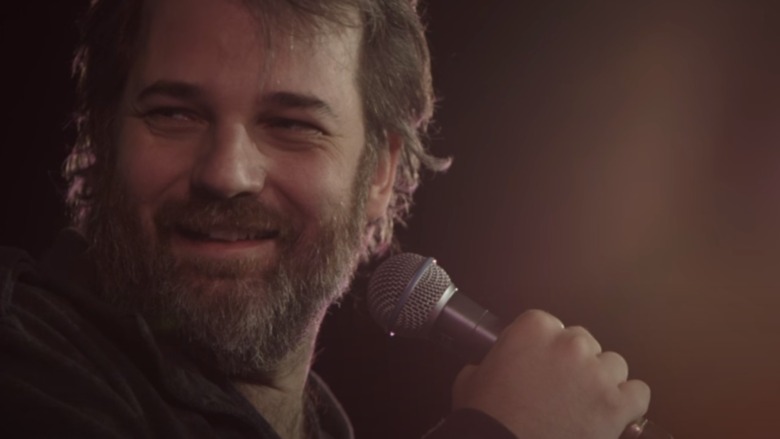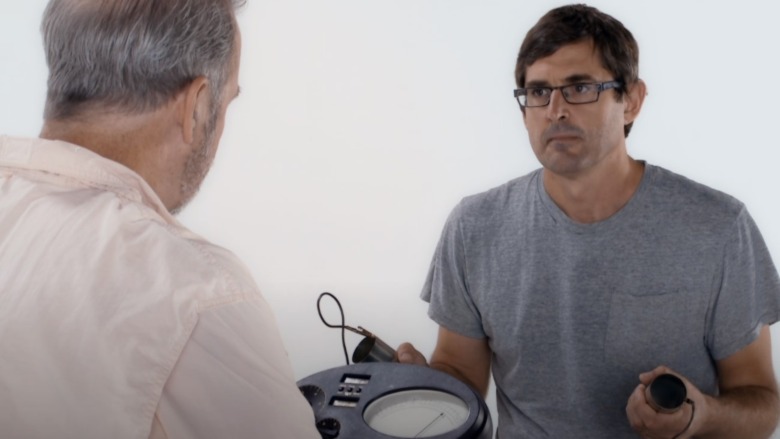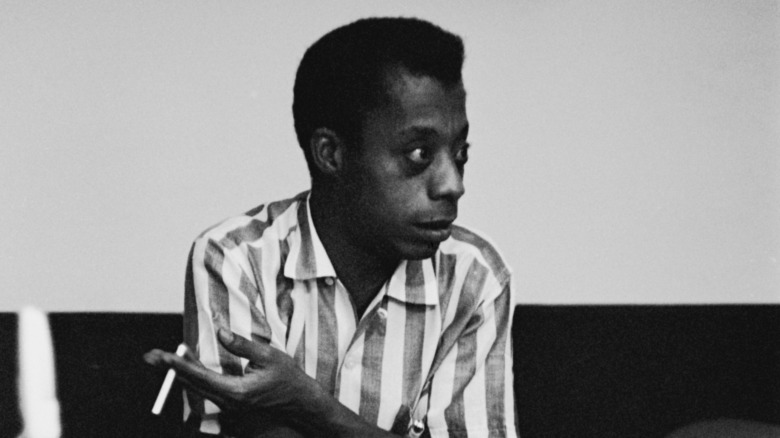The Best Free Documentaries You Can Watch On YouTube Right Now
Documentaries are the bee's knees. Without them, how would we know what goes on outside? By going outside? What are we, lumberjacks? And here's the really wild part: It wasn't all that long ago — fifteen years, maybe? — that you had to go to a video store to rent these things. People had to go outside to find movies about what was happening outside. Talk about redundant. And they charged you for the privilege, too! Blockbuster, man. She was a harsh mistress.
Luckily for all of us, the world has moved forward, and films of all stripes can now be streamed directly to the device of your choice. Even more luckily, YouTube now features a cornucopia of feature films from around the world, with many of them available to watch for free. We've combed through their offerings and put together a list of some of the best documentaries on the menu. From chronicles of artistic endeavors to the shady underside of American politics, here's what we came up with.
With Great Power: The Stan Lee Story
At this point, Marvel Comics' contributions to the cultural landscape are hard to overstate. The MCU has become the closest thing that Disney will ever have to an actual machine that prints money, taking the title of "most profitable franchise" by a wide margin. The iconography is omnipresent, and the catchphrases are a shared language. "Wakanda Forever." "I am Iron Man." "With great power comes great responsibility."
And all of that, in part anyway, is thanks to Stan Lee, the smoky celebrity uncle of every nerd's dreams. Fans of the face of Marvel will already be familiar with the folkloric stories that he tells during "With Great Power: The Stan Lee Story," but they've also watched a dozen different takes on Spider-Man's origin story by now. Classics are classics for a reason.
For a good idea of the range of Lee's legacy, "With Great Power" features George W. Bush, Kevin Feige, Patrick Stewart, and Nicolas Cage in the first minute alone. By the end of the second minute, you'll have seen clips of interviews with Kevin Smith, Larry King, James Franco, Jon Favreau, Ringo Starr, and Paris Hilton. Excelsior, sir.
Harmontown
Dan Harmon, probably best known as the co-creator of "Rick and Morty," pulled off a difficult maneuver after he was fired from "Community" after Season 3, crossing the cultural blood/brain barrier from behind-the-scenes entity to recognizable celebrity. The secret seems to stem from his smartest-guy-in-the-frat charisma, his self-deprecating humor, and the fact that he built up a legion of swarming, devoted fans through his podcast, "Harmontown."
In 2014, a documentary of the same name was produced, following Harmon and company across the country as they performed live episodes of "Harmontown" at sold-out bars, clubs, and comic book shops.
The result is a bleak but heartwarming look at the life of a troubled, but beloved creator — one that follows Harmon's own "Story 101" format for making relatable, imperfect characters suspiciously closely. If you triangulate between quotes like "I'm either John Belushi or I'm unprofessional" and "I'm the Oprah of ineffectual white people," maybe you'll get something close to an accurate read on the guy.
Citizenfour
In 2015, the Academy Award for Best Documentary Feature went to "Citizenfour." It's kind of hard to argue with the decision.
"Citizenfour" was the third of three films in Laura Poitras' 9/11 trilogy, following her exploration of the U.S. occupation of Iraq in 2006's "My Country, My Country" and her close-up look at the lives of people orbiting Osama bin Laden in 2010's "The Oath." Here, she turns the camera toward a shadowy figure calling himself Citizenfour, who claims to have information on U.S. government programs dedicated to the illegal surveillance of Americans.
The result is a real-life international spy thriller with wide-ranging consequences. The documentary's eponymous contributor turns out to be Edward Snowden, and the filmmakers wind up capturing a significant amount of his struggle following the massive intelligence leak that he spearheaded, including the cancellation of his passport and attempts to extradite him back to the United States. The drama keeps unfolding the more you learn about it, too — The New York Times ran an extensive piece about the creation of the film that reads like an espionage novel.
My Scientology Movie
Maybe it's schadenfreude, maybe it's the human inclination toward feeling courageous by proxy, but some of the most striking documentaries are the ones that make you feel like you're watching someone chuck rocks at a wasp nest for an hour and a half. With that in mind, "My Scientology Movie" is a 99-minute recreation of the third act of "My Girl."
The way the filmmakers tell it, they had wanted to explore the inner workings of the Church of Scientology for a while, but the organization's renowned ability to circle its wagons made an inside look impossible to obtain. The solution: following in the footsteps of "The Act of Killing," they brought former members of the church in on the project and encouraged them to carry out dramatic reenactments of their experiences. The result is a story that tells itself. The documentary's featured subject, journalist Louis Theroux, finds himself at odds with not just ex-Scientologists, but with current members purportedly sent by the church to stop him from documenting the exact behaviors that they exhibit in front of the camera.
I Am Not Your Negro
"I Am Not Your Negro," one of the only movies on Metacritic to receive a near-perfect rating, takes its inspiration from an unfinished, 30-page collection of notes by James Baldwin titled "Remember This House." The film points out that the notes were originally conceived as a way to "tell his story of America through the lives of three of his murdered friends: Medgar Evers, Martin Luther King Jr, and Malcolm X."
Going beyond the documentary's astonishing reconsideration of these three killings, one of its most astonishing qualities is its ability to frame 60-year-old struggles as a mirror image of the issues of the present. Footage from the mid-20th century is juxtaposed against contemporary photographs of the Black Lives Matter movement in the film's opening sequence, making it difficult to stop thinking about the parallels as the story continues and after the credits roll. The result is an Academy Award-nominated, BAFTA award-winning motion picture that's almost impossible to get out of your head.
